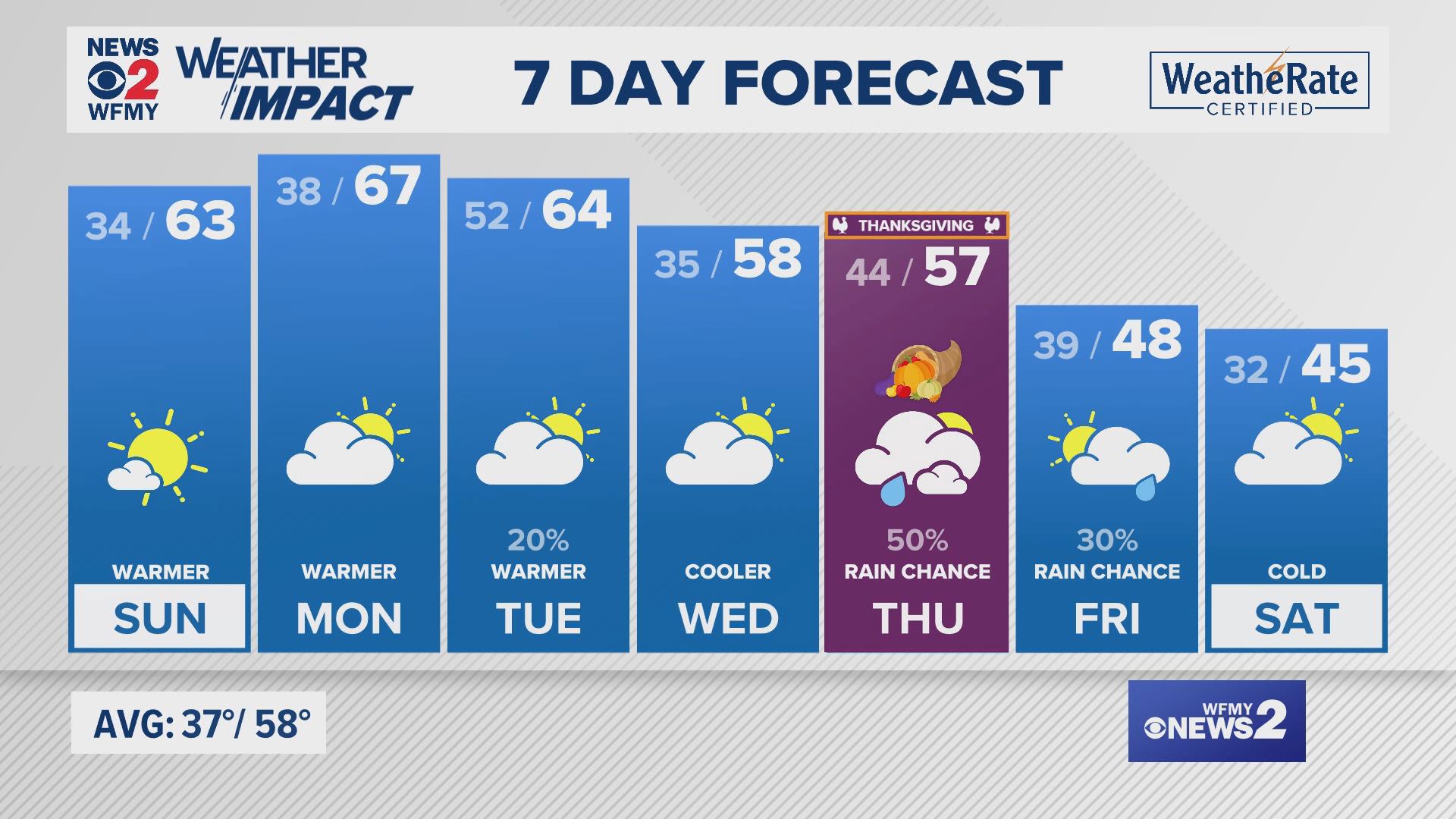CHARLOTTE, N.C. — North Carolina's Department of Environmental Quality, along with the environmental departments for New Jersey and New Mexico, pushed the Environmental Protection Agency to add four PFAS to the Clean Air Act list of hazardous air pollutants.
In a petition obtained by WCNC Charlotte, the three states write that "The unregulated nature of per- and polyfluorinated substances (PFAS) as air pollutants is a tremendous concern in our States and across the U.S." adding that "the EPA has not established an air pollution control program for PFAS, and PFAS emissions in ambient air remain largely unmeasured and unregulated."
The states are petitioning the EPA to add the following PFAS to be regulated under Section 112 of the Clean Air Act:
- Perflurooctanoic acid (PFOA)
- Perfluorooctane sulfonic acid (PFOS)
- Perfluorononanoic acid (PFNA)
- Hexafluoropropylene oxide dimer acid (GenX or HFPO-DA)
In April 2024, the Biden administration finalized strict limits on certain so-called “forever chemicals” in drinking water that will require utilities to reduce them to the lowest level they can be reliably measured. Officials say this will reduce exposure for 100 million people and help prevent thousands of illnesses, including cancers.
The EPA is ramping up research on the toxins found at wastewater treatment plants, certain manufacturers, landfills, and airports.
Sampling data shows that Charlotte Douglas International Airport is one of the highest sources of forever chemicals in Mecklenburg County because of the use of firefighting foam. Charlotte’s fire training academy is the county’s other high source of PFAS contamination for the same reason.
Right now, almost 4 million North Carolinians have dangerous levels of forever chemicals in their drinking water. Catawba Riverkeeper Brandon Jones told WCNC Charlotte in December 2023 that Charlotte’s drinking water fairs well compared to other communities.
"The concentrations that we've seen in the Catawba are much lower than most of the current human health risk assessments," Jones said. "So, unlike in the Wilmington area or in the Pittsburgh area, we're not seeing those really high levels of concentrations."
Chemical manufacturer 3M will begin payments starting in the third quarter to many U.S. public drinking water systems as part of a multi-billion-dollar settlement over contamination with potentially harmful compounds used in firefighting foam and several consumer products.
The Associated Press contributed to this report.



